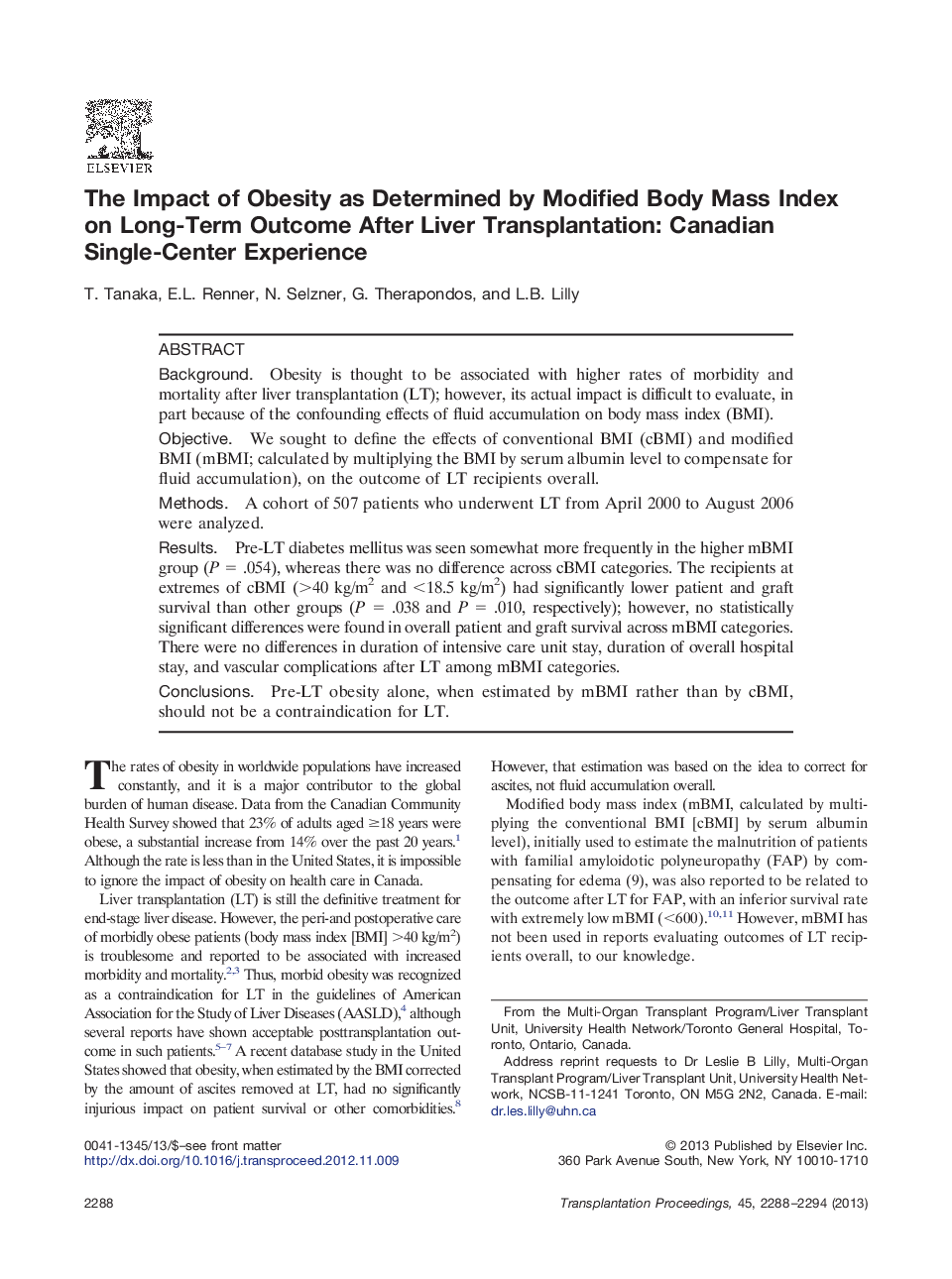| Article ID | Journal | Published Year | Pages | File Type |
|---|---|---|---|---|
| 4255669 | Transplantation Proceedings | 2013 | 7 Pages |
BackgroundObesity is thought to be associated with higher rates of morbidity and mortality after liver transplantation (LT); however, its actual impact is difficult to evaluate, in part because of the confounding effects of fluid accumulation on body mass index (BMI).ObjectiveWe sought to define the effects of conventional BMI (cBMI) and modified BMI (mBMI; calculated by multiplying the BMI by serum albumin level to compensate for fluid accumulation), on the outcome of LT recipients overall.MethodsA cohort of 507 patients who underwent LT from April 2000 to August 2006 were analyzed.ResultsPre-LT diabetes mellitus was seen somewhat more frequently in the higher mBMI group (P = .054), whereas there was no difference across cBMI categories. The recipients at extremes of cBMI (>40 kg/m2 and <18.5 kg/m2) had significantly lower patient and graft survival than other groups (P = .038 and P = .010, respectively); however, no statistically significant differences were found in overall patient and graft survival across mBMI categories. There were no differences in duration of intensive care unit stay, duration of overall hospital stay, and vascular complications after LT among mBMI categories.ConclusionsPre-LT obesity alone, when estimated by mBMI rather than by cBMI, should not be a contraindication for LT.
